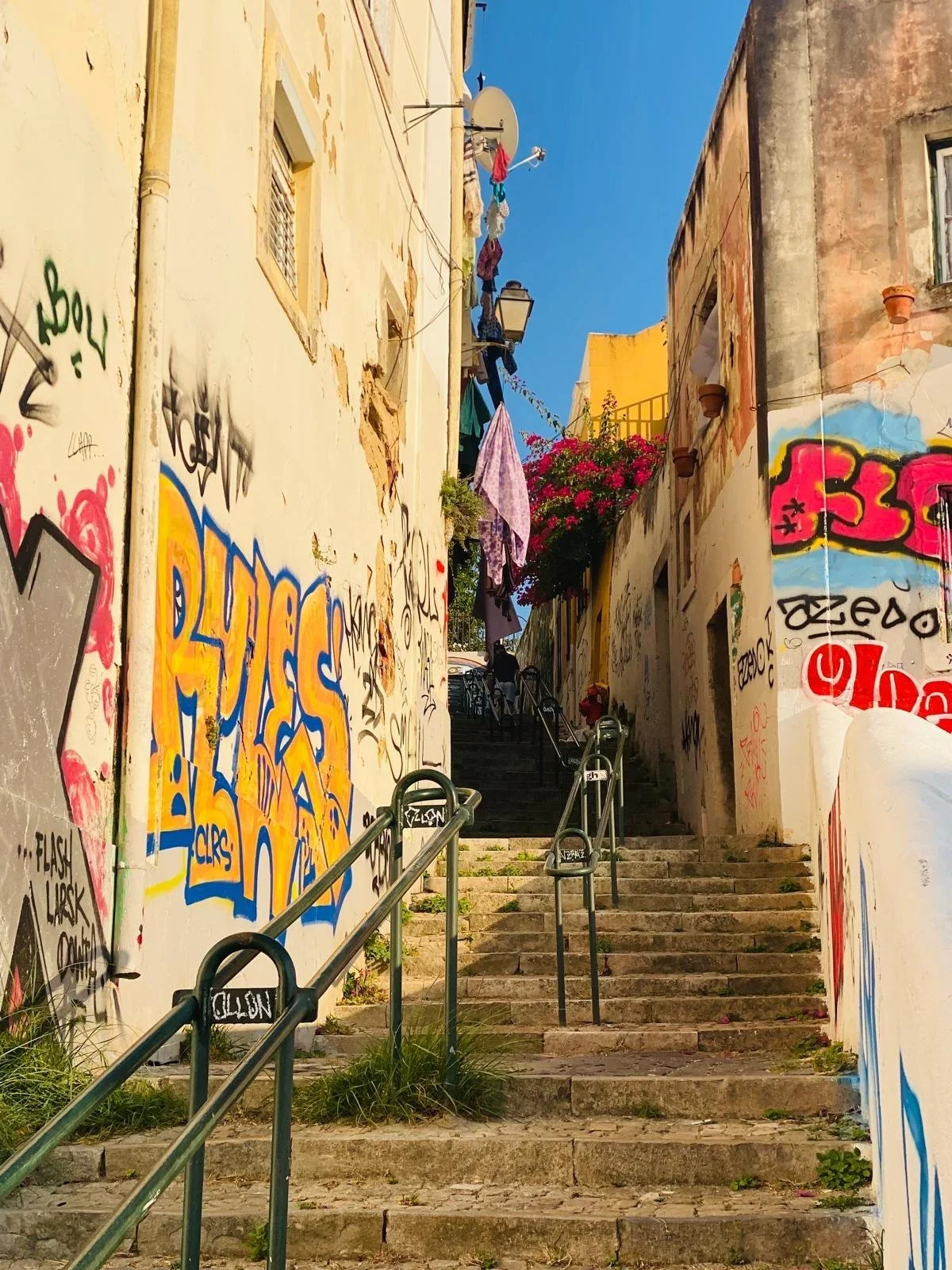Avoid These 6 Mistakes When Exploring Mouraria: A Cultural Respect Guide
Help travelers enter marginalized neighborhoods with reverence and curiosity beyond consumption.
Located in the heart of Lisbon, Mouraria is a vibrant mosaic of cultures, rhythms, and resilience. It’s a neighborhood shaped by centuries of immigration, community solidarity, and creative resistance. Yet in recent years, Mouraria similar to many marginalized urban areas has become the target of "discovery" by mass tourism.
At Soul Dreamers, we believe in travel as a dialogue where each of our guests becomes actors taking part in a immersive theatre storytelling neighbourhood magic journey. As you walk the streets of Mouraria, listen to fado floating through the alleyways, taste flavors from Mozambique, Bangladesh, Brazil, or Pakistan, we invite you to approach not as a consumer, but as a conscious guest.
To help travelers experience Mouraria with reverence and curiosity, here are six common mistakes to avoid—and what to do instead.
✖️ 1. Treating Mouraria Like a Trendy “Hidden Gem”
✅ Instead: Acknowledge its complex history. Be curious about its hidden stories. Appreciate its magic with reverence.
Mouraria is not really a new “it” destination. It is in fact one of Lisbon’s oldest quarters historically home to Moors, migrants, and marginalized communities. Its recent popularity among tourists stems from gentrification and not due to rediscovery. Learn about its real story before stepping in.
✖️ 2. Taking Photos of People Without Permission
✅ Instead: Ask first, and connect.
This neighborhood is not a set. Residents are not props for your travel album. Smile. Say hello. Strike up a conversation. Ask for permission before taking photos, especially of elders or children. Sometimes, a shared moment is more meaningful than a picture.
✖️ 3. Assuming Everyone Wants Tourism
✅ Instead: Respect community boundaries.
Not all locals benefit from tourism, and many are being priced out of their homes. Stay mindful of where you spend money. Support immigrant-run businesses, family eateries, and community centers. Avoid short-term rentals that contribute to housing displacement in the area.
✖️ 4. Only Consuming the Surface Culture
✅ Instead: Seek deeper experiences.
Yes, fado and food are part of Mouraria’s soul. But beyond that are stories of resistance, exile, love, and survival. Join cultural walks led by locals, attend community events, and ask questions. True culture is lived through daily stories, struggles, and celebrations.
✖️ 5. Looking for "Authenticity" Without Responsibility
✅ Instead: Ask how your presence helps or harms.
If you’re seeking “authenticity,” ensure it doesn’t come at the cost of locals' dignity. Does your tour pay fairly? Are performers being exploited? Is your guide deeply connected with the neighborhood? Align your experience with your values.
✖️ 6. Leaving No Positive Trace
✅ Instead: Give back.
Leave a good impression. Tip generously. Share your positive experiences publicly (especially when they uplift immigrant-run or grassroots projects). And consider how your travel stories can challenge stereotypes about marginalized areas.
🌍 Mouraria Needs More Dreamers and Less Visitors
To walk Mouraria’s streets with respect is to honor its layered identities, African, Arab, South Asian, Roma, Chinese, Brazilian, Portuguese, and the list goes on. It’s to be open to unfiltered stories and to practice empathy across language, religion, and class.
At Soul Dreamers, we guide immersive cultural experiences in Mouraria that celebrate its multicultural richness, without romanticizing or exploiting it. Our tours are rooted in social anthropology, music, migration stories, and personal dialogue with the people who shape the neighborhood.
🧭 Ready to explore with reverence?
Join our Soul Dreamers Lisbon Experience:
👉 https://www.airbnb.com/experiences/108932
Want to go deeper? Read our previous blog:
📝 The 5 Biggest Pitfalls of Choosing “Local” Experiences That Aren’t Truly Local



